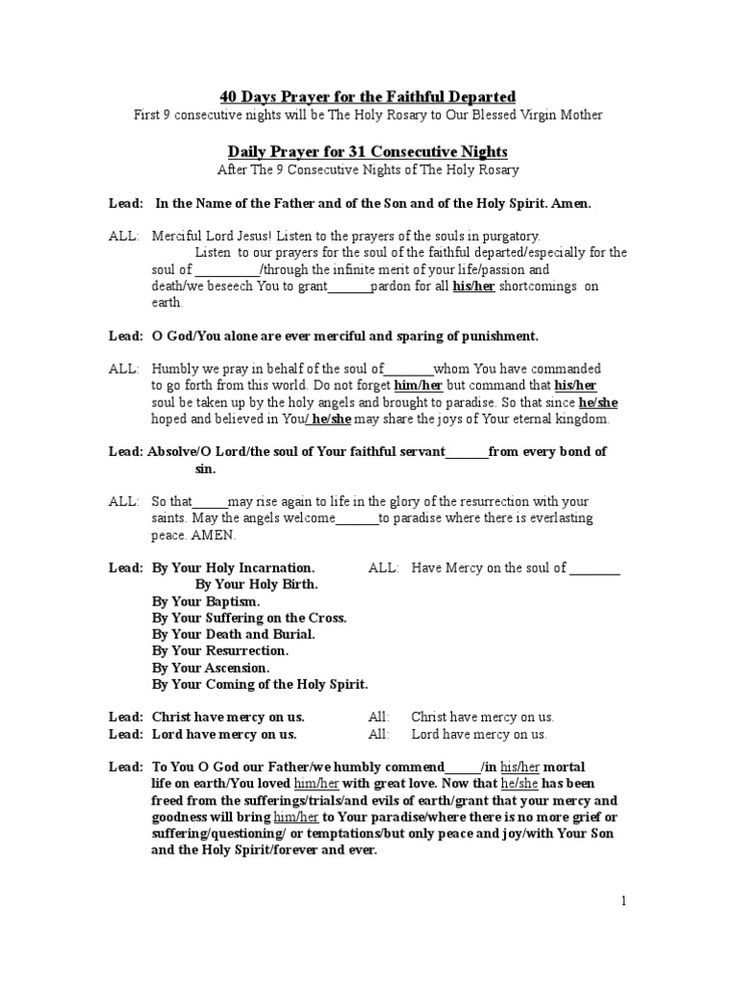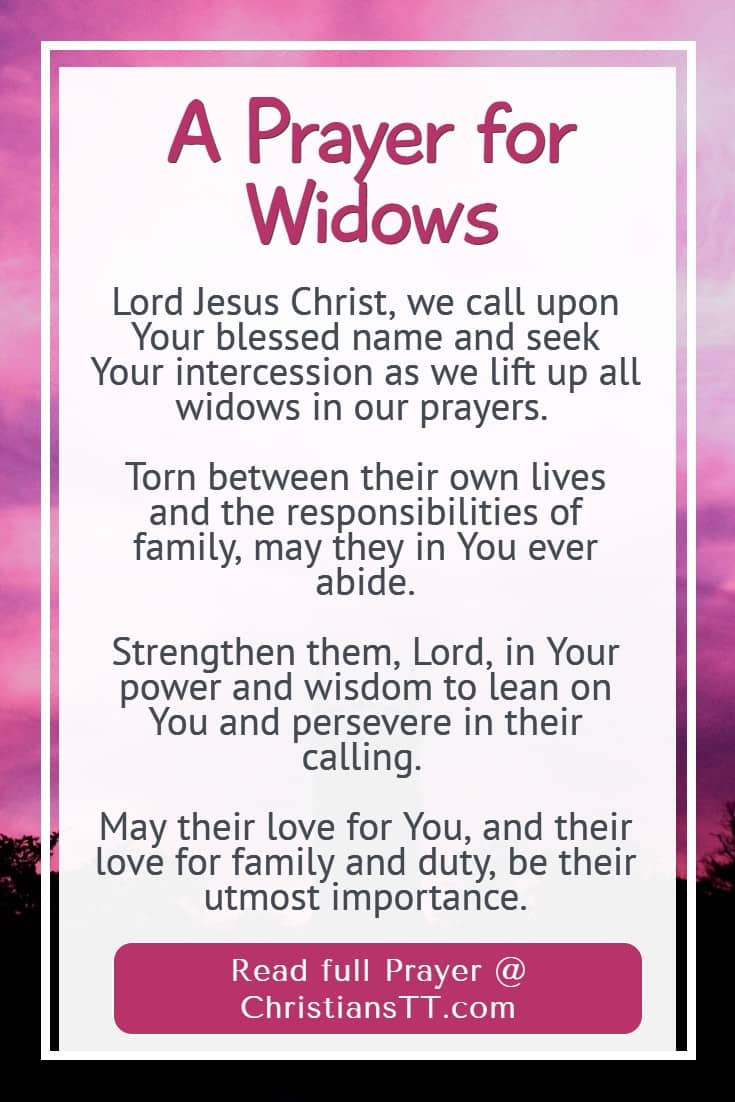The 40th Day Novena Prayer For The Dead in Filipino Culture
The 40th Day Novena Prayer For the Dead is a sacred ritual observed by many Filipinos. Although the reason for it is unknown, the ceremony is considered sacred because it is said to break curses. There are many traditions and rites associated with the pasiyam, but this article will highlight the most important ones. Learn the meaning of pasiyam and its significance in Filipino culture.
Pasiyam
The 40th Day Novena is a religious ritual performed during a funeral service. It is an opportunity for the departed to come to terms with the fact that they have died. In the Catholic faith, the soul does not remain in the earthly realm for a very long time. It is said that evil tries to find the soul of the dead around 8 PM. At the same time, people pray for the deceased at this hour. This prayer is often done nightly and is led by a ‘Mangunahay’. People also share snacks with those who stay awake.
After death, the soul wanders between earth and heaven. The soul leaves the body on the 40th day. It never returns. It is believed that the soul is forgiven by God and continues to watch over the lives of its relatives. Family members can visit the grave site on the 40th day to honor the deceased and help the soul find eternal peace. The 40th Day Novena is a tradition held by many Filipino families to honor the deceased.
The Filipino tradition of the novena prayer for the dead began in 1930 and continues today. The many testimonials associated with this prayer will make you believe in its efficacy. I know of a friend who prayed for nine months straight and received all three of his petitions. It is truly a powerful practice. So, if you have a loved one who passed away recently, this is definitely worth a try.
40th-day tradition
The Catholic religion holds that the soul of a dead person does not wander for a long time after death, and this belief was blended with Filipino culture during the Spanish era. Nowadays, this tradition is practised by many Filipino families. Many Filipinos also perform this prayer for their dead relatives. They believe that this prayer is a way to protect their loved ones’ souls in the afterlife.
The novena begins on the day the deceased died. The prayer is said to make the departed realize that they are now in the spirit world and that the next day their spirits would go straight to heaven. During the nine-day novena, the prayer warriors recite a litany and regular formulaic prayer, and on the fortieth day, a simple meal is served.
The prayer for the dead begins with a glass of water which is refreshed each day. Then, on the 40th day, the water from the previous day is poured out and a towel is left at the window of the deceased’s room. It is also customary to leave a towel and a cup of water by the deceased’s window, which they can shake into the cemetery on the day of his death, thus releasing his soul.
Another ritual that follows the novena is a family gathering. A funeral service is held on this day, and the family usually gathers to pray for the deceased’s soul. This tradition is not unique to the Philippines, but it is a cultural tradition. Some Filipinos even perform this prayer to commemorate a loved one who died in a war. The funeral service is an important part of the novena, and it is a common practice to hold a memorial service for the dead.
Meaning of novena
The Forty Day Novena is a traditional mourning tradition in the Philippines. It is based on the belief that the dead wander around the Earth for forty days. A novena is held at the cemetery for the dead, with family and friends present. It is one way to remember those who passed away and to encourage others to live life to the fullest. Sadly, there are no known Filipino saints. But the Filipino people do have many traditions and beliefs that are worth considering.
For more than a month, the family and friends of the deceased will gather to offer prayers and masses for the deceased. These novena prayers are known as pasiyam or pagsisiyam, and are offered at the home of the deceased. The novena is concluded with a formal meal for family and friends. The 40th day of Lent is a pivotal period in the Catholic faith, and has several important days.
In the Philippines, the family of the deceased is held in a wake before the funeral. There are also religious rituals such as Mass and burial, and the deceased is placed in the hands of a loved one. Some Filipinos even break the rosary as a symbol of their love for the deceased. In some cultures, small children are encouraged to wear red to prevent the spirit from haunting them.
Significance of pasiyam in Filipino culture
The significance of Pasiyam is not limited to the Philippines. Many Filipinos also follow other cultures, which have their own traditions and ways of grieving. Funerals in the Philippines are very similar to Catholic services, and include hymns, prayers, and Scripture readings. Filipinos also often hold large gatherings for the vigil, and there are often several traditions displayed during the funeral. In this article, we will take a look at some of the traditions involved in the Pasiyam.
The tradition of palasiyam originated in the Philippines. It has become one of the most widely practiced religious practices in the country. Filipinos often participate in palasiyam, which involves praying nine days after a funeral. In return, the people who donate pasiyam stay and help during the wake and nine-day prayer. They also participate in celebrations and household work. This way, the family unit remains strong and enduring.
The funeral is only one part of the Philippines’ elaborate mourning custom. Pasiyam is practiced for nine days, beginning the night of the deceased’s death. During this time, the deceased’s soul leaves their physical body, forming a vaporous thumb-sized structure called a linga sarira. This vaporous structure is seized by two servants of the god Yama, the god of death.
Symbolism of rosary
The Filipinos observe a nine-day mourning period following the death of their loved one. This period is referred to as the “Siyam na araw.” After nine days, a black plastic pin is placed on the coffin to symbolize the bereavement. A ceremonial mass is held at the end of the period. During this time, relatives and friends of the deceased are expected to visit the grave site.
The 40th-day novena prayer has different interpretations in the Philippines. It is a traditional Catholic prayer that can stand alone or be included in a larger service. It does not replace other prayers but instead seeks to seek forgiveness from God for sins committed during life. It also asks God to forgive the soul of the departed person. It also asks for the peace of the deceased person’s soul and asks for the preservation of the family unit.
According to the Philippine Catholic tradition, the 40th day of death is not the same as the 40th day after the death. In this tradition, the deceased’s soul spends the 40 days between heaven and earth. On the 40th day, it leaves the body, and never returns. In the meantime, its spiritual component is still monitoring the earthly life of the relatives. On the 40th day, the relatives of the deceased visit the grave site, remove the funeral wreath, and perform prayers to cleanse the deceased’s soul and bring eternal peace.
Ways to pray a novena
Filipinos believe that the soul of the dead enters the spirit world on the ninth day after death. After passing through the physical world, the soul is bound to roam for at least 40 days before reaching heaven. During this time, a person’s family will offer prayers for the deceased and the soul of the departed will be protected from evil spirits. There are several ways to pray a 40th-day novena for the dead in the Philippines.
A 40th-day novena is a special prayer for the dead performed in churches. It is a tradition based on the belief that souls wander the earth for forty days before returning to God. Most Filipinos are Catholics by tradition, and even families without strong religious inclinations still follow Catholic traditions when a loved one passes away. In the Philippines, Filipinos believe that the deceased’s body should be blessed by a priest prior to interment.
Many people in the Philippines perform the novena for the deceased every nine days. It is a time for the bereaved to be in a state of grief for the first 30 days. Some Filipinos choose to visit the departed in the funeral home for one or two nights. Others choose to stay at home and grieve. Regardless of the type of rite performed, a novena is a powerful way to remember loved ones.






